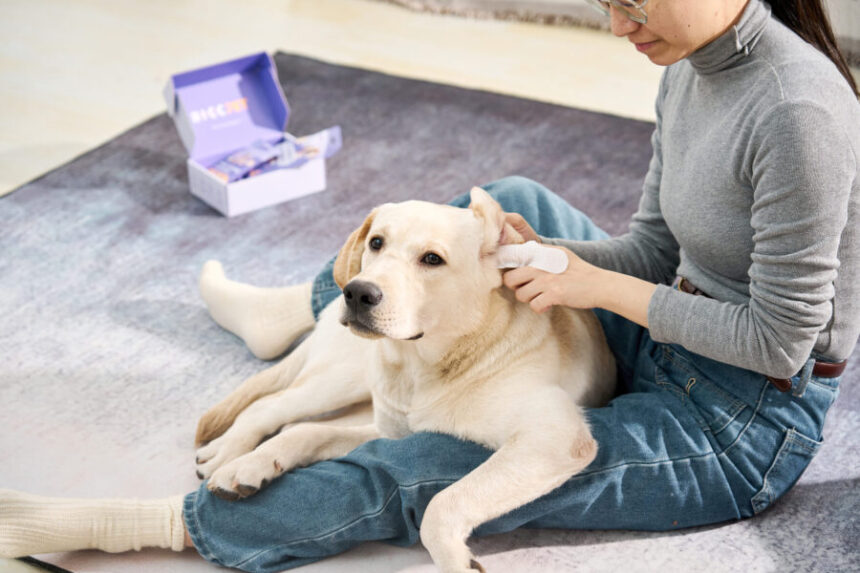Ear infections in dogs are itchy, painful, and cause discomfort, but even if your dog is prone to them, there are steps you can take to prevent them.
Ear infections in dogs are common, affecting about 20% of pups at any time. They can be acute or chronic, often caused by debris buildup that allows bacteria and yeast to thrive. The most common type, otitis externa, occurs in the ear canal. Left untreated, infections can lead to serious complications like painful ear hematomas, also known as “cauliflower ears.” With proper preventive care, you can help your dog avoid discomfort and stay healthy.
Understand the Causes of Ear Infections
Ear infections in dogs can result from environmental factors or genetic predispositions. They often develop when debris builds up, fostering bacteria and yeast, especially in the ear canal. Breeds like Basset Hounds and Cocker Spaniels are at higher risk due to their long, floppy ears, which limit air circulation. Common causes include:
- Allergies
- Excessive earwax
- Moisture from swimming
- Parasites
- Trauma
- Foreign objects
- Tumors
Infections are more frequent in warmer months, making up 10-15% of veterinary visits during that time.
Regular Ear Cleaning Practices
You can help prevent ear infections or reduce their severity by routinely cleaning your dog’s ears during grooming and after activities like swimming. Clean their ears weekly or monthly, especially if they’re prone to infections. Always dry their ears after getting wet and check for discharge, dirt, scratches, or parasites. Use vet-recommended ear cleaners such as HICC Pet®’s Ear Finger Wipes in Manuka Honey and Hypochlorous Acid Ear Rinse, avoid allergens, and visit the vet at the first sign of an infection to keep your dog’s ears healthy.
Keep Your Dog’s Ears Dry
Moisture trapped in the ears creates an ideal environment for bacteria and yeast to grow, leading to infections. By keeping your dog’s ears dry, you can significantly reduce the risk of these issues. Dry your dog’s ears to prevent infections using a soft, clean towel or a cotton ball to gently absorb any excess moisture, being careful not to push debris deeper into the ear canal.
Watch for Early Signs of Trouble
Being able to spot the early signs of an ear infection can make a big difference in your dog’s health. Watch for symptoms like:
- Redness
- Swelling
- Frequent scratching
- Pawing at the ears
- Foul odor
- Head shaking or tilting
Regularly inspect your dog’s ears during grooming sessions, and if you notice anything unusual, consult your veterinarian promptly to prevent the condition from worsening. If you observe any signs of an ear infection in your dog, reach out to your veterinarian to schedule an appointment for a proper diagnosis before proceeding with treatment.
Conclusion
Preventing ear infections in dogs is all about staying proactive. Regular ear cleaning, keeping ears dry, and watching for early warning signs are simple yet effective steps. By staying vigilant and prioritizing your dog’s ear care, you can ensure their comfort and long-term well-being. For additional guidance, don’t hesitate to consult your veterinarian.
Post Views: 5


